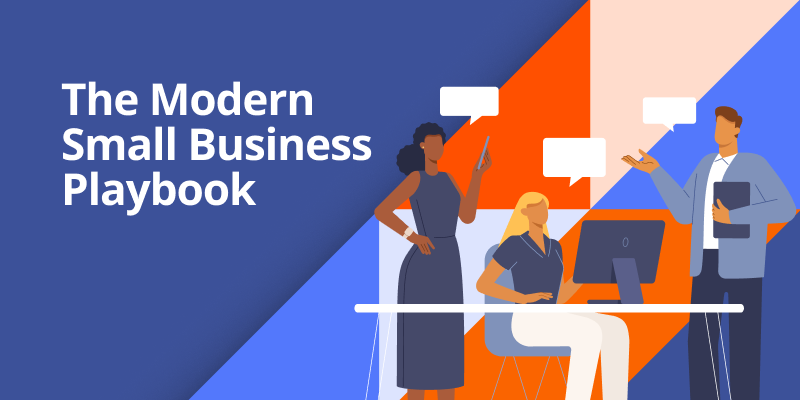What does it mean to take ownership of customer service?
According to Teri Yanovitch, a former trainer for Disney and author of Unleashing Excellence: The Complete Guide to Ultimate Customer Service (Wiley), “Delivering world class service is not a series of techniques, but it is a culture and way of life within an organization. It requires each employee to take ownership of the customer experience by engaging their minds and hearts into creating memorable and positive moments.”
A company’s success relies on each experience its clients have. For employees to take ownership of their role, they need to understand how they fit into the big picture and how their output affects the next step in the process. Good customer service starts from the inside out. Even if a person’s job is to support the company internally and not interact directly with clients, each person’s actions still make a difference.

Modern Small Business Playbook
DownloadThink of it this way. Your company is a giant engine with many parts.
Like an airplane, there are many pieces that need to be maintained in order to get customers from point A to point B. But when things go wrong, their safety is endangered. When one person doesn’t take ownership of his or her role, and the next person is lackadaisical, and the next is less than interested, the consequences pile up. In the case of many small businesses, it can mean the loss of a client.
It’s been said in investigative reports that the cause of a plane crash isn’t one thing, but is due to a series of errors that led up to the catastrophic event. We can prevent plane crashes; or, in the case of small businesses, customers from leaving.
When you help employees take ownership of their role, you invest in your company’s future.
Yanovitch suggests that to take ownership of our roles, we should each take STOCK:
- Sincerity – Looking through the lens of the customer (whether internal or external) and putting yourself into her shoes both emotionally and physically
- Touchpoints – Seeing the points of contact with a customer as opportunities to do more than the job task, but to build a relationship
- Organization – Organizing yourself and the job process for more effective ways to accomplish the outputs
- Care – Showing passion in your job and to the people around you
- Knowledge – Having a constant drive for continuous improvement
How will you and your employees take STOCK of your role and your impact on the bottom line?
Learn more:
Touchpoints and Moments of Truth – Where Customer Loyalty Begins (or Ends)
Customer Journey Mapping for Small Business

Modern Small
Business Playbook
Find expert tips and tools to help you streamline communications, automate your marketing efforts, improve your business operations, and more in this free guide.



